Identifying targetable alterations through molecular profiling is a key part of today’s treatment strategy for many tumour types. Laboratory practice can be divided into three phases: pre-analytical, analytical and post-analytical.
This infographic from Dr Alexander Wyatt (GU genomics expert) and Prof. Frédéric Bibeau (pathologist) provides an overview of pre-analytical phase challenges and practical recommendations on how best to navigate them. Download the pdf version for the full reference list.
Pre-analytical phase: Key considerations
- The pre-analytical phase comprises test selection, sample collection, patient identification, transportation and handling of the sample, processing, and storage
- 70% of the issues within the tissue sample workflow occur during the pre-analytic phase. These issues affect the diagnostic process and molecular profiling, ultimately impacting patient care, and result in an increased cost burden for laboratories
- As we know, numerous HCPs and lab staff are involved in the pre-analytical phase, and issues in any of the steps can lead to erroneous results attributed to the pre-analytical phase
Clinical Takeaways
- Sub-optimal implementation of pre-analytical phases may impact the accuracy of the following analysis, affecting the results and subsequently impacting patient care and cost
- Standardisation of and monitoring the pre-analytical steps is crucial, as is documenting any deviations that occur in the process
- Medical, surgical and pathology departments should work in close collaboration to ensure quality and quantity of the samples


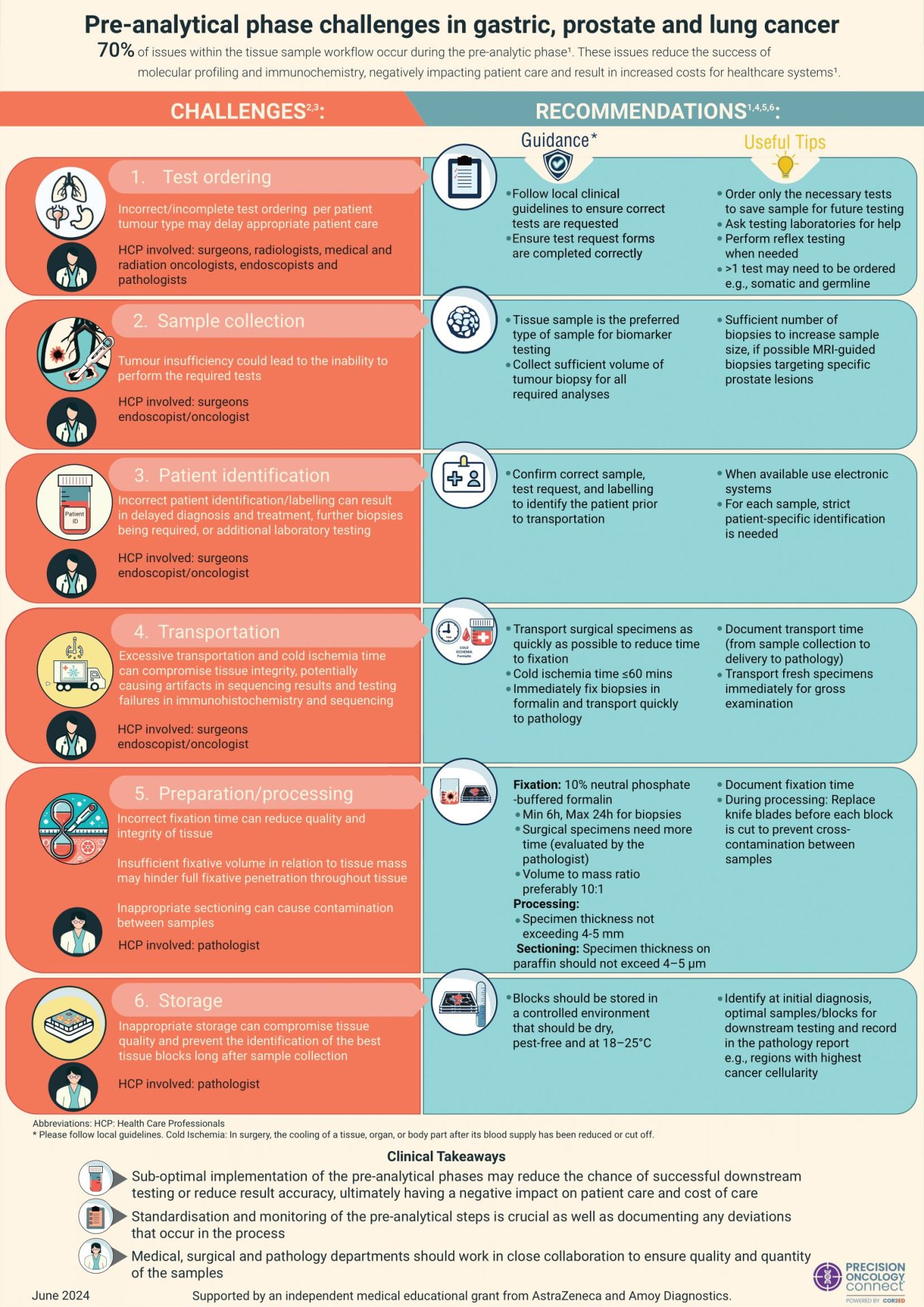
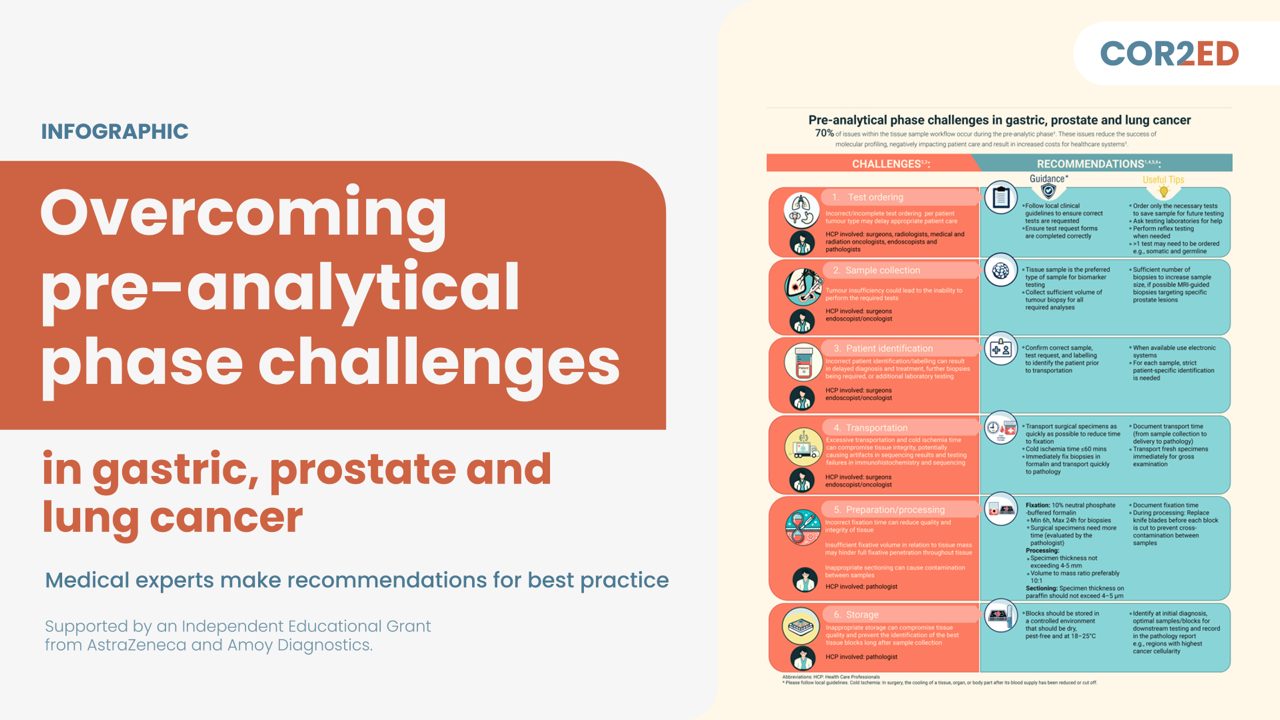
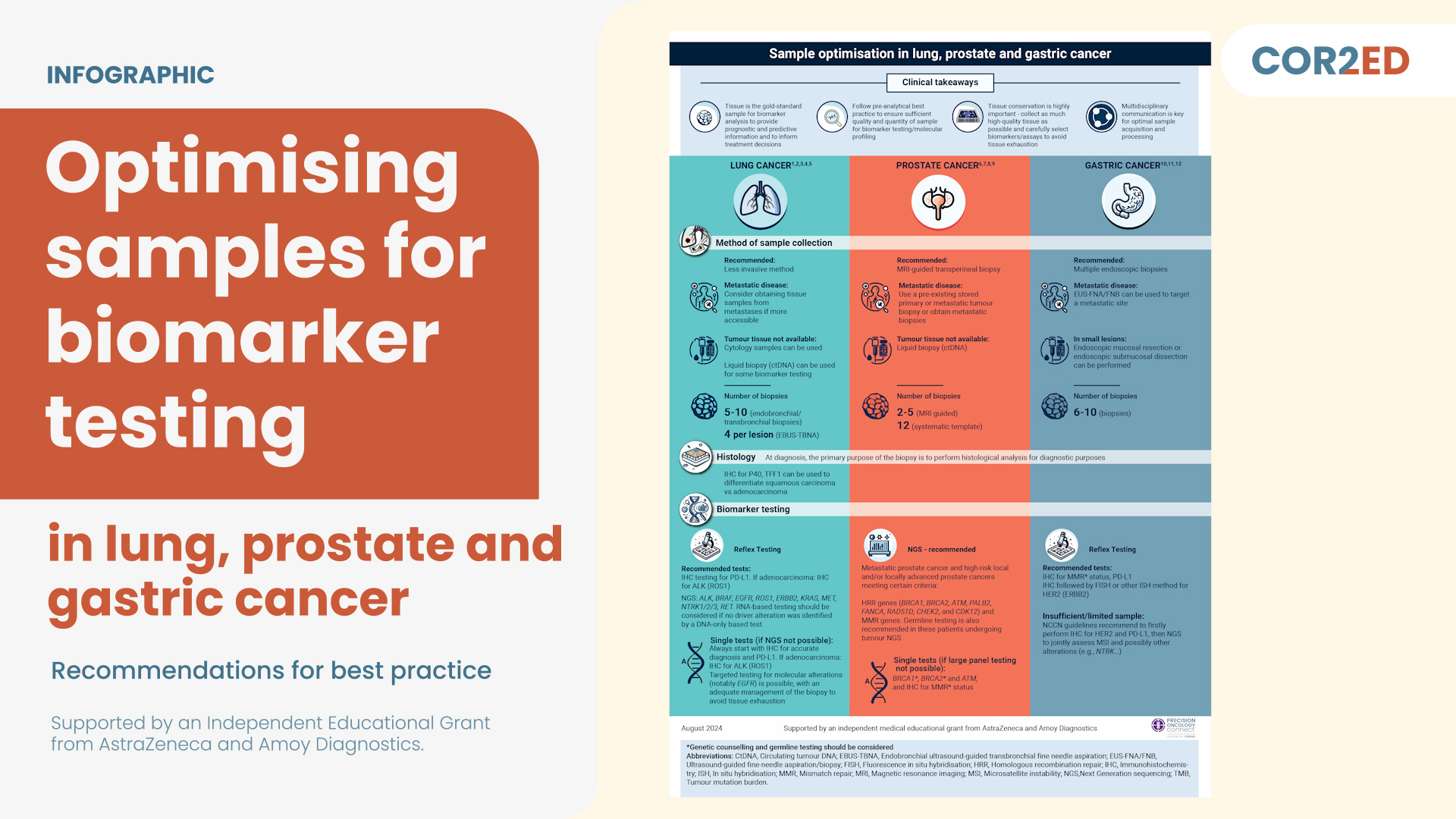


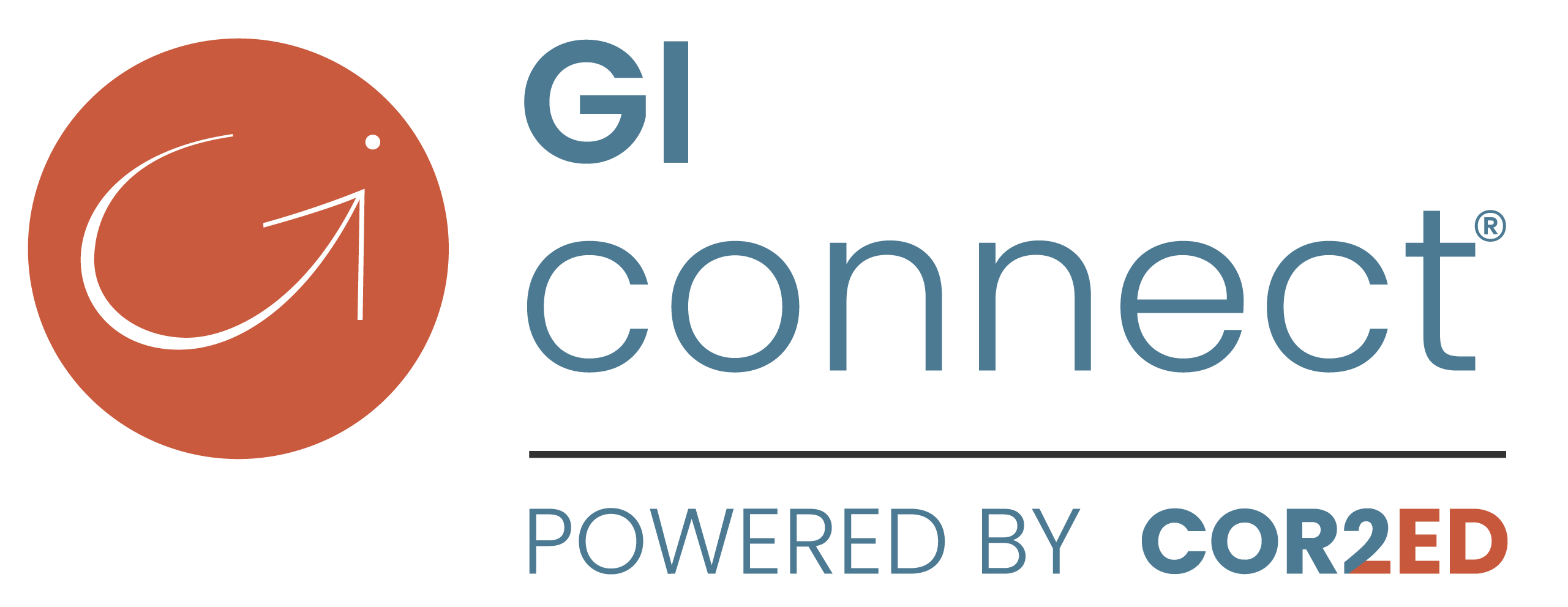
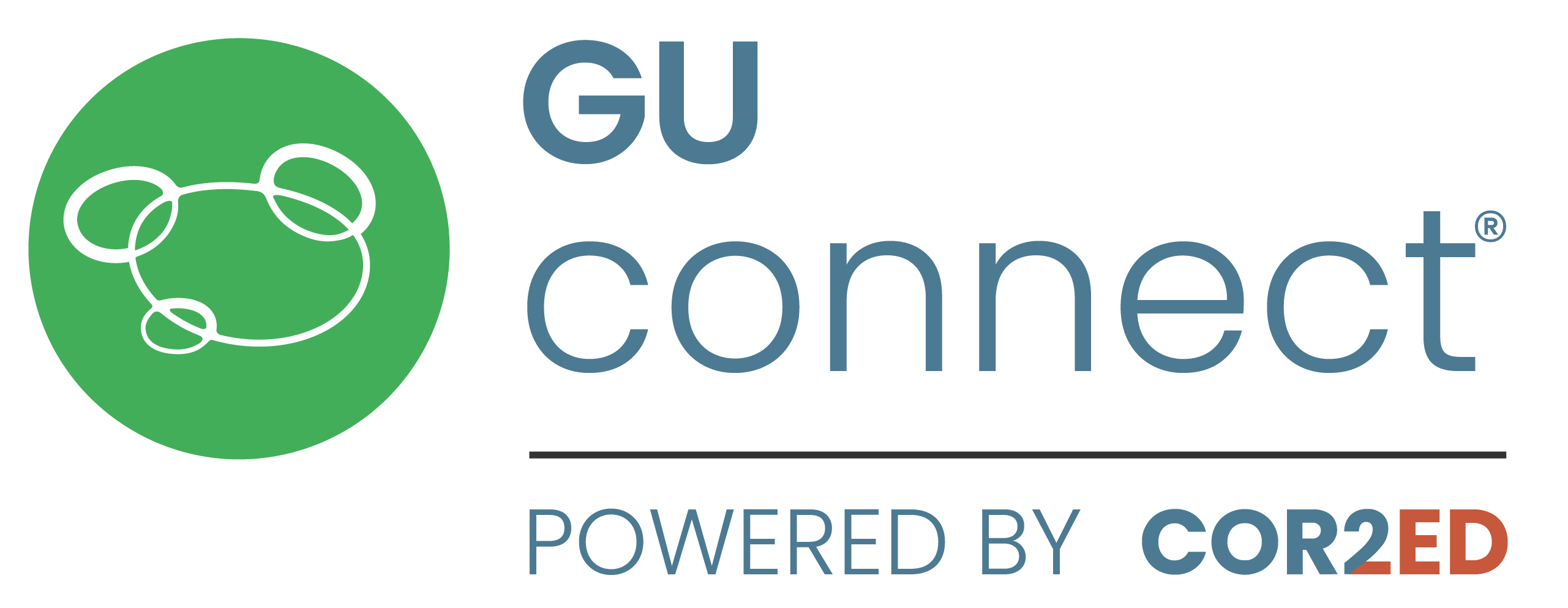


 Downloadable
Downloadable  20 MIN
20 MIN
 Feb 2026
Feb 2026 








